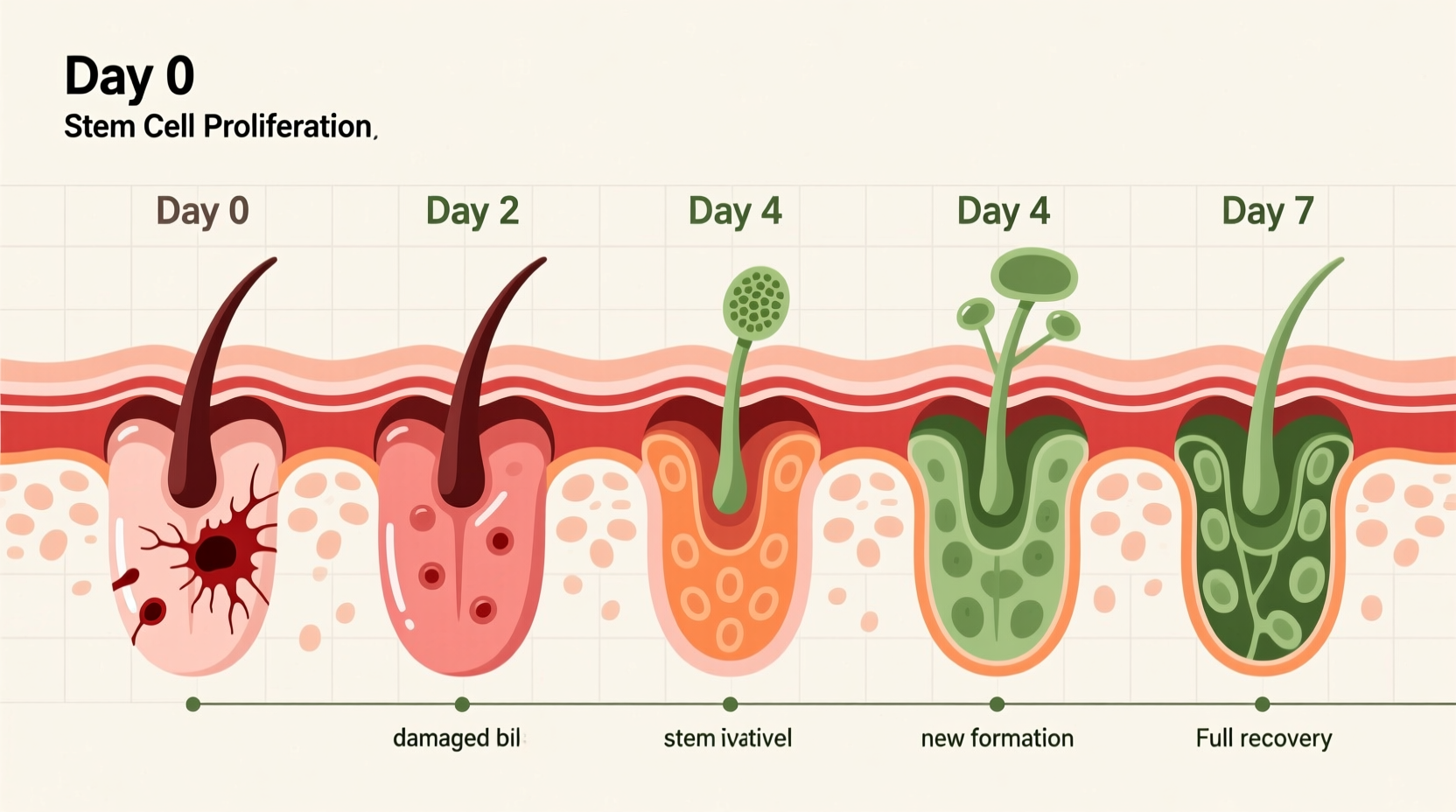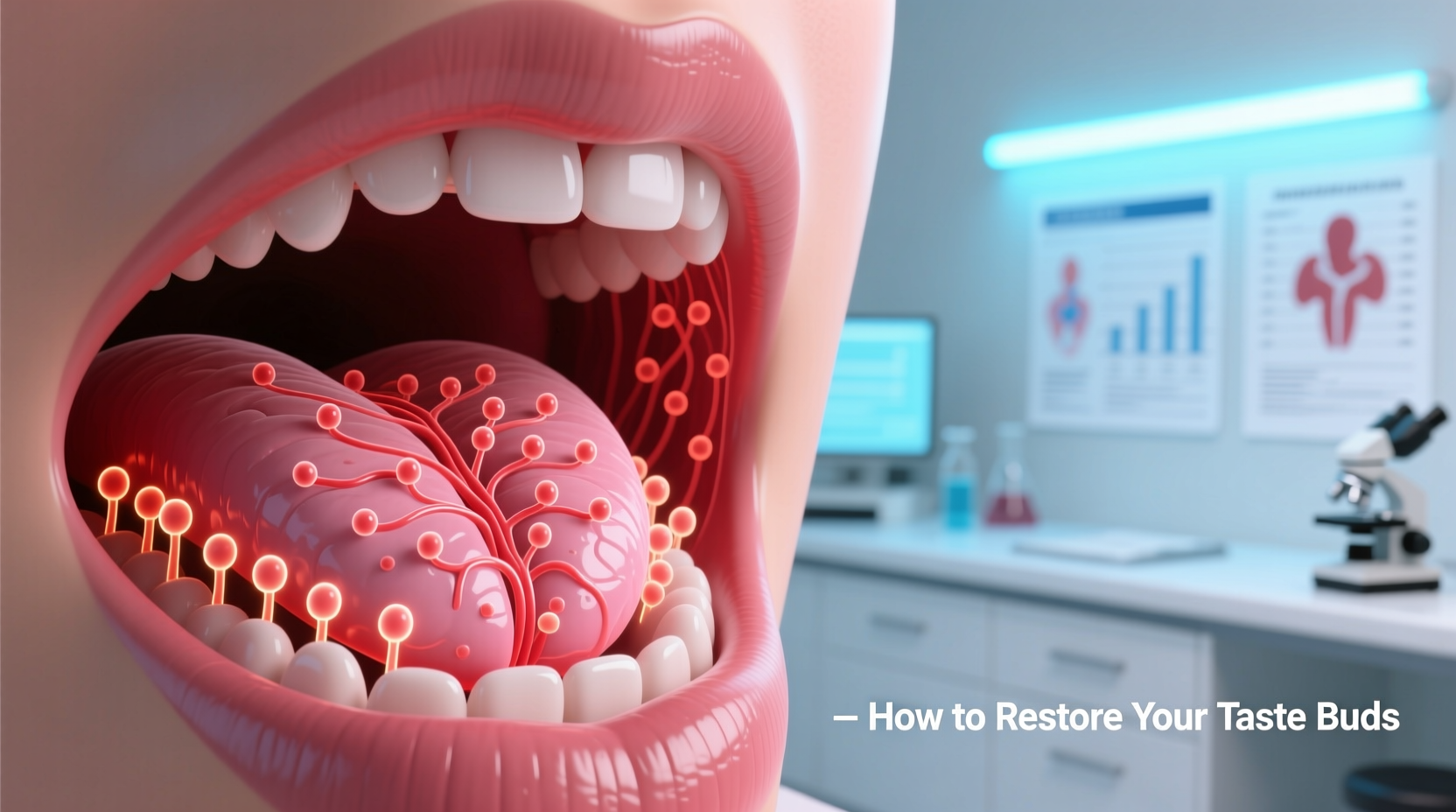Understanding Taste Loss: Why It Happens
Temporary loss of taste (ageusia or hypogeusia) affects millions annually, most commonly following viral infections like colds, flu, or post-COVID-19 recovery. Your taste buds themselves rarely disappear—they're usually affected by inflammation, dry mouth, or disrupted nerve signals. The National Institute on Deafness and Other Communication Disorders (NIDCD) reports that approximately 1 in 8 adults experience taste disorders, with viral infections being the leading cause.
| Cause of Taste Loss | Recovery Timeline | Recovery Rate |
|---|---|---|
| Common cold/flu | 1-2 weeks | 98% |
| Post-COVID-19 | 2-8 weeks | 90% within 6 months |
| Medication side effects | Varies | 85% after adjustment |
| Dental issues | 1-3 weeks | 95% |
This comparison shows why identifying your specific cause matters—most temporary taste issues resolve completely with appropriate interventions. Permanent taste loss is rare and typically associated with severe head trauma or neurological conditions.
Immediate Actions for Taste Recovery (First 48 Hours)
When you first notice diminished taste, these evidence-based steps can accelerate recovery:
Optimize Oral Hydration
Dry mouth significantly impairs taste perception. The Mayo Clinic recommends sipping water throughout the day and using alcohol-free mouthwashes. Try this simple protocol:
- Morning: Rinse with warm salt water (1/2 tsp salt in 8oz water)
- After meals: Use xylitol-based mouth rinse
- Before bed: Apply oral moisturizing gel
Zinc Supplementation Protocol
Research published in Chemical Senses shows zinc deficiency correlates strongly with taste disorders. A 2022 meta-analysis confirmed that zinc gluconate supplementation significantly improves recovery rates:
- Dosage: 50mg elemental zinc daily for 2 weeks, then 25mg for 4 weeks
- Best forms: Zinc gluconate or zinc acetate (better absorbed)
- Caution: Don't exceed 40mg daily long-term without medical supervision

Medical Interventions Worth Discussing With Your Doctor
When home remedies don't yield improvement within 10 days, consult a healthcare provider. These medically-supported approaches show promise:
Prescription Options
For persistent cases, particularly post-viral:
- Topical nasal steroids: Fluticasone nasal spray shows 60% improvement in smell/taste function within 4 weeks according to JAMA Otolaryngology research
- Omega-3 supplementation: 2,000mg daily improved taste recovery in 73% of study participants
- Medication review: 35% of prescription drugs list taste disturbance as a side effect
Professional Smell Training
The American Academy of Otolaryngology recommends structured smell training for taste recovery since smell contributes to 80% of flavor perception:
- Use four distinct scents: lemon, rose, clove, eucalyptus
- Sniff each for 20 seconds, twice daily
- Focus on recalling the memory of the scent
- Continue for minimum 12 weeks
Long-Term Recovery Strategies
For cases lasting beyond 4 weeks, these approaches optimize neural regeneration:
Nutritional Support Protocol
Certain nutrients directly support taste bud regeneration:
- Vitamin B12: 1,000mcg sublingual daily (deficiency causes permanent taste changes)
- Vitamin A: 5,000IU daily from food sources like sweet potatoes and carrots
- Alpha-lipoic acid: 600mg daily shows promise in nerve regeneration studies
Flavor Enhancement Techniques
While recovering, maximize flavor perception through:
- Temperature contrast: Serve foods slightly warmer than usual
- Texture variation: Combine crunchy and smooth elements
- Acid balance: Add citrus or vinegar to stimulate remaining taste receptors
- Umami boosters: Use mushrooms, tomatoes, or nutritional yeast
When to Seek Immediate Medical Attention
Consult a specialist immediately if you experience:
- Taste loss with facial weakness or drooping (possible stroke)
- Complete loss lasting beyond 2 weeks with no improvement
- Painful mouth lesions or swelling
- Symptoms following head injury
Early intervention significantly improves outcomes for neurological causes of taste disorders.
Realistic Recovery Timelines
Understanding the progression helps manage expectations. Based on NIDCD data:
- Days 1-7: Focus on hydration and zinc—most notice slight improvement
- Weeks 2-4: Begin smell training—70% report gradual return of basic tastes
- Weeks 5-8: Complex flavors return—85% recover salty/sweet perception
- Months 3-6: Subtle flavors return—95% achieve full recovery
Patience is crucial—taste recovery follows the same neural pathways as smell, which regenerates slowly. Document your progress with a simple taste journal tracking sweet, salty, sour, and bitter perception daily.











 浙公网安备
33010002000092号
浙公网安备
33010002000092号 浙B2-20120091-4
浙B2-20120091-4